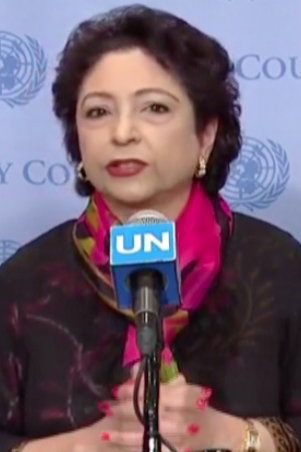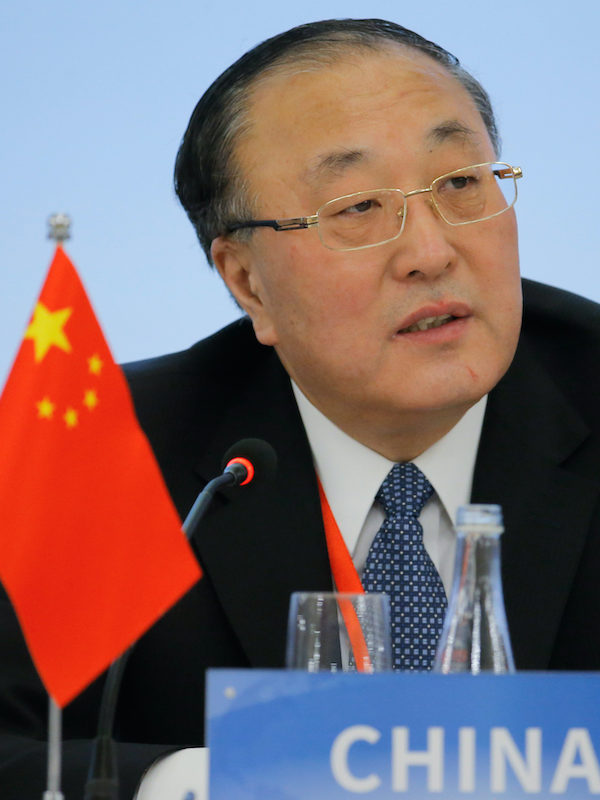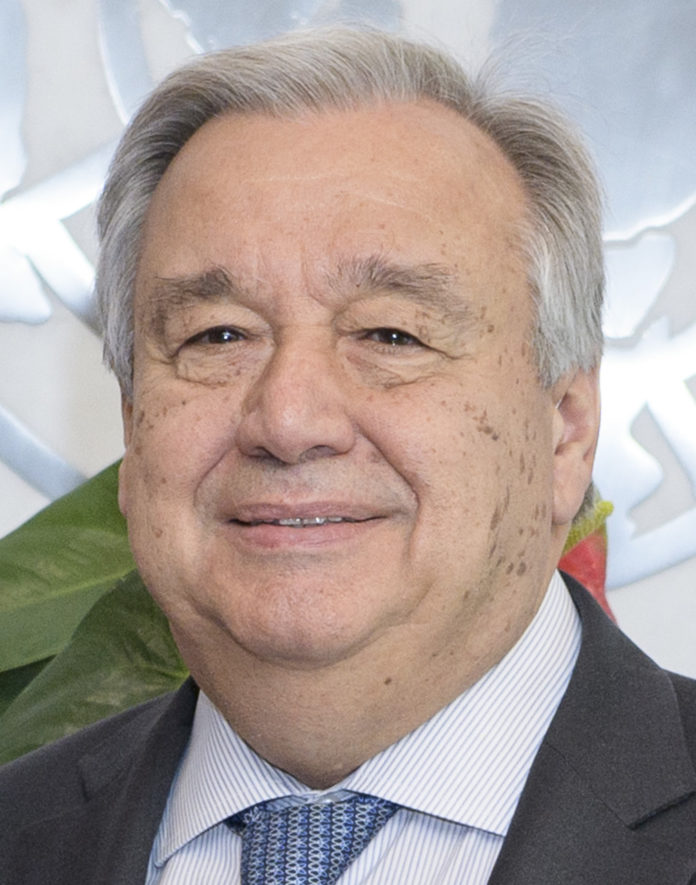Pakistan has aptly decided to take the Kashmir dispute to the International Court of Justice (ICJ). Federal cabinet has given the go ahead. Decision has been taken after considering all legal aspects. Pakistan indeed has a strong legal case against India. Case would be focused on ‘human rights and genocide in Indian-occupied Kashmir. Two consecutive reports by Office of the High Commissioner for Human Rights (OHCHR) on Jammu and Kashmir amply support Pakistan’s stance. The move is part of Pakistan’s efforts to highlight the issue of Kashmir, especially after India unilaterally changed its status. India while abrogating the Article 370 of its constitution on August 05, has notionally annexed the territory and has imposed curfew, media gag and other restrictions. The unilateral move of the Indian premier has threatened peace in the region. United Nations Secretary General has accepted Pakistan’s historic stance on the dispute in his statement.
US President Donald Trump spoke with Prime Minister Imran Khan and India’s Prime Minister Narendra Modi on August 21, urging a reduction of tensions over the disputed Kashmir region. “The president conveyed the importance of reducing tensions between India and Pakistan and maintaining peace in the region,” White House spokesman Hogan Gidley said in a statement. PM Imran apprised President Trump about the situation arising in the region after Modi’s August 5 step. “Prime Minister Khan expressed serious concern over a humanitarian crisis triggered in [occupied] Kashmir and hoped [the] US would play its role in resolving the crisis,” Foreign Minister Shah Mehmood Qureshi told a televised press conference in Islamabad. “Khan asked President Trump to talk to Indian Prime Minister Modi” about ways to lower tensions between the two countries, Qureshi said. “We want a UN Observer Mission to be dispatched forthwith to Indian-administered Kashmir”, he added.
PM Imran Khan has told the US President that the unilateral step taken by India was in contravention of the international laws and UN resolution. And that India wanted to change the demography in Jammu and Kashmir so that Muslim majority in the occupied Kashmir could be turned into a minority. PM Imran further said that he was seeing a humanitarian crisis taking place. The US President was told that 15 days had passed, the occupied valley was in curfew and several residents of the valley were either taken into custody or had gone missing. PM Imran urged President Trump to play his role and asked him to call upon India to lift curfew in the valley. The prime minister urged that the international human rights organisations should be sent to Indian Occupied Kashmir (IoK) so that the gravity of situation there is known to the World. And that India should honour its commitment and resolve the crisis according to the resolutions of Security Council on which it is bound to act.
BJP governments have always ditched India on its vital national interests. Its first Prime Minister AB Vajpayee took the fateful decision of India’s overt nuclearisation. Without such a folly, Pakistan’s nuclear weapon programme could not have seen the light of the day. And now BJP’s second Prime Minister Narendra Modi has gifted to Pakistan what Islamabad could not achieve through Operations Gibraltar and Kargil. Since August 05, Indian civil society is severely polarized on the issue, all leading newspaper of Western media are carrying articles on Kashmir. After June 1998, the issue is once again back to United Nations Security Council (UNSC) and the ICJ. And a Chapter VII resolution by the UNSC as well as the ICJ verdict accepting disputed status of Kashmir is just a matter of time. Modi has many a fiascos to his (dis)credit: revocation of Article 370, Pulwama false flag operation and Doklan debacle are just the three recent ones. India does not need an external enemy if Indian people keep throwing up such erratic leadership, again and again.
Pakistan’s permanent envoy to the United Nations Dr. Maleeha Lodhi has said the Security Council’s consultative meeting is testament that Kashmir issue is not an internal matter of India but an international issue. Pakistan is making a hectic diplomatic effort. On August 16, Prime Minister Imran Khan held a telephonic conversation with President Trump and took him into confidence over UNSC meeting on India’s illegal Kashmir move. Before the UNSC meeting, the premier also reached out to four out of five heads of permanent member states of the Security Council over the issue.

Briefing the media along with the Chinese envoy to the UN after the UNSC’s closed door meeting, on August 17, Dr. Lodhi said there was an effort to cancel this meeting and we are grateful to all member states for having it. All the 15 permanent and non-permanent member states attended the consultative session. Meeting was briefed on the latest developments and the dismal human rights situation in IoK.
Speaking on the occasion, the Chinese ambassador to the UN, Zhang Jun, said the Kashmir issue has become an internationally recognised dispute, which should be resolved according to the UN charter. He said India’s unilateral step has aggravated the situation in the region. The Chinese ambassador said members of the Security Council generally feel India and Pakistan should both refrain from unilateral action over Kashmir. Zhang told reporters that the situation in Kashmir is “already very tense and very dangerous”. China has decided to fully support Pakistan on Kashmir issue amid New Delhi’s attempts to change the demography of the disputed area and ethnic cleansing of Kashmiris. China has affirmed its ‘complete support’ in motion against India at UNSC.
Uncertainty surround as to the exact course the UNSC would eventually steer on Kashmir issue, Express Tribune editorially commented on August 18:
“While it is not known what would be the future action plan of the United Nations, it would, however, be humanity on trial if the world body failed to bring an end to the sufferings of the Kashmiri people who had been subjected to horrifying persecution at the hands of ruthless Indian security forces for the last three decades. Kumi Naidoo, the Secretary-General of the Amnesty International, sounded so relevant when he, in a statement, said, “The people of Jammu and Kashmir should not be treated as pawns in a political crisis, and the international community must come together to call for their human rights to be respected.”
Back in India, Kashmiris protested against the Modi government’s highly provocative move after Friday prayers on August 16. Police fired tear gas and pellet-firing shotguns to disperse residents who tried to march down the main road in Srinagar. Protesters hurled stones and used shop hoardings and tin sheets as improvised shields, as police shot dozens of rounds into the crowd.
Warning that the Kashmir crisis could get worse, Pakistan’s Ambassador to the United States Asad Majeed Khan has raised the possibility that Islamabad might redeploy troops from the Afghanistan border to the Kashmir frontier, a shift that could complicate American peace talks with the Taliban, now said to be in the final stages. In an interview with The New York Times editorial board on August 12, Asad emphasised that the Kashmir and Afghanistan issues were separate and that he was not attempting to link them. “It’s not an either-or situation.” India’s crackdown on occupied Kashmir as it annexed the disputed state “could not have come at a worse time for us.” Pakistan has it splatter full on the Afghan border. If the situation escalates on the eastern border, Pakistan will have to undertake redeployments. As of now Pakistan is not thinking about anything but what is happening on its eastern border.
Meanwhile, Indian Supreme Court Judge, Justice Arun Mishra, said that Indian authorities need more time to restore order in Kashmir [IoK]. The court is hearing an activist’s petition seeking to lift curbs on communications and movement that have disrupted normal life and essential services in the IoK. The petition also seeks the release of detained political leaders in Kashmir, among more than 1000 people held to prevent widespread protests. Menaka Guruswamy, a lawyer for the petitioner, said the court should move to restore hospital services and open schools. “That is all I ask,” she told the Supreme Court in New Delhi. Judge remarked that the government wanted to bring Kashmir back to normal as soon as possible. “The situation is such that nobody knows what is going on. We should give them time to restore normalcy. Nobody can take one per cent of chance,” Mishra said. “Who will be responsible if something really bad happens tomorrow?” The IoK has been under an unprecedented lockdown since August 5, when India revoked IoK’s special constitutional status dating back nearly 70 years.
In another development, according to India Today Mohammad Akbar Lone and Justice (Retd) Hasnain Masoodi of the National Conference led by former Jammu and Kashmir chief minister Omar Abdullah have filed a petition in Supreme Court of India on August 10 challenging the presidential decree revoking occupied Kashmir’s autonomous status. According to the petition, the orders issued by the Indian president, and the legislation approved by the Indian parliament were “unconstitutional”. Petitioners have prayed for the legislation to be declared as “void and inoperative”. “This case, therefore, goes to the heart of Indian federalism, democratic processes and the rule of the apex court as the guardian of the federal structure,” the petition read.
Islamabad is considering ‘other [non-military] options’ to deal with the deteriorating security situation in IoK; PM Imran Khan feared more bloodshed in the valley in coming days. “we hope there’s no bloodshed, but we see things moving towards further escalation in tension,” he added. The Foreign Minister of Pakistan commented that the government does not want to consider ‘military options’. “However, we reserve the right to defend our motherland in event of any misadventure,” he added. Pakistan has the right to intervene because India has attempted to change demography of a conflict region.
An increase in the region’s security measures and heightened human rights violations in Occupied Kashmir are two negative consequences of India’s August 5 move. Protests erupted simultaneously throughout the occupied valley as soon as curfew was relaxed for a few hours in IOK on August 09, there were also reports of deaths in the clashes between protesters and the Indian troops in the valley.
While India is trying to show a rosy picture to the world as if it has done nothing wrong, calling the Kashmir issue its ‘internal matter’. There are reports of food shortages due prolonged spells of curfew. An acute shortage of medicines is an equally alarming issue.
With the World’s eyes firmly set on Occupied Kashmir as Indian atrocities in the disputed Himalayan valley reach their zenith, New Delhi is contemplating to conduct false flag operation (s) to malign Pakistan. Indian troops plan to stage a fake operation and Indian government would project it as military action against Pakistan along the Line of Control (LoC) and Working Boundary (WB). Reports suggest that India has set up a fake Pakistani check-post in the occupied territory with a view to stage a mock encounter in order to malign Pakistan.
In his article published in The Washington Post on August 13, Ambassador Asad Khan said India’s revocation of Kashmir’s special status is a slap in the face of a renewed American commitment to solve the Kashmir dispute. Referring to President Trump’s recent offers to mediate the Indo-Pakistan dispute, the ambassador said India’s unilateral action in Kashmir makes “plain to the world the depth of India’s arrogant indifference to the region’s peace and stability.” “In the past, diplomatic support from our allies helped lower tensions. This is why it is more urgent than ever for the United States to do what it can to prevent India from precipitating another crisis,” wrote Ambassador Khan.
The territorial dispute of Jammu and Kashmir one of the oldest on the United Nations’ agenda is the legacy of the end, in 1947, of British rule in the Indian subcontinent. Indeed, unfinished agenda of partition of Indian subcontinent. The people of Kashmir have now been waiting for 72 years to exercise their right to decide their future, which was promised to them, repeatedly, by India.

The United Nations has called for the government in New Delhi to roll back the constitutional amendment under which Article 370 was repealed. India continues to ramp up its attempts to muzzle the voice of Kashmiris. The 73rd Independence Day of Pakistan was celebrated as ‘Kashmir Solidarity Day’ to express full support to Kashmiri brethren in their just struggle for right to self-determination. To mark the occasion, Prime Minister Imran Khan addressed the Azad Jammu and Kashmir Legislative Assembly (AJKLA) on August 14, while rallies were taken out in all small and major cities of the country and seminars were organised to highlight the plight of oppressed people in the occupied Kashmir. August 12, which marked the first day of Eid ul Azha, saw people not being able to offer Eid prayers and slaughter sacrificial animals.
The Modi government’s Kashmir move has been condemned by the international community as well as voices inside India. Narendra Modi’s government’s decision to scrap Article 370 “shows that India is no longer willing to pay even lip service to its international obligations.” There are 11 UN resolutions on Kashmir, with three specifically pertaining to the status of the occupied region.
Prime Minister Imran Khan has, meanwhile, warned the world that its silence on developments in India-held Kashmir would be akin to appeasing Hitler. RSS ideology of Hindu supremacy will lead to suppression of Muslims in India and to targeting of Pakistan’. The prime minister, in a couple of tweets on the eve of Eid ul Azha, sought to draw the world’s attention to the Indian move. “The curfew, crackdown and impending genocide of Kashmiris in IOK is unfolding exactly according to RSS ideology inspired by Nazi ideology. Attempt is to change demography of Kashmir through ethnic cleansing. Question is: Will the world watch & appease as they did Hitler at Munich?” Mr. Khan tweeted. The prime minister apprehended: “RSS ideology of Hindu Supremacy, like the Nazi Aryan Supremacy, will not stop in IOK; instead it will lead to suppression of Muslims in India and eventually lead to targeting of Pakistan. The Hindu Supremacists version of Hitler’s Lebensraum.”
The voice of the people of Occupied Kashmir is being heard in the highest diplomatic forums. This is the first but not the last step Pakistan has taken to support aspirations of the people of Jammu and Kashmir. Islamabad will continue its efforts to peacefully resolve this issue. Kashmiris are not alone, their voices have been heard, and their plight, their hardship, their pain, their suffering, occupation of their land and the consequences of that occupation are now a global concern.
Cardinal question for the moment is: Will Narendra Modi’s premediated triggering of crisis in Indian Occupied Kashmir (IoK) snowball enough to incite and invoke US led intervention by the UN to throw up a win-win solution for one of the oldest disputes on the UN agenda? Presumably, Modi initiated the process on side-lines of recent G-20 summit, when he asked the US President Donald Trump to mediate for resolving Kashmir dispute. He may have also proposed a roadmap to Trump who’s ever excited twitter is mum, on the issue, since the annexation of IoK. Another question is: Was Trump aware that Modi was about to act this way prior to his summit with Prime Minister Imran Khan, [circumstantial evidence suggests that he did], if so, whom was he fooling? Or Did Modi hoodwink Trump and used him as a joker in his broader plan? If so, Trump will hit back soon and ponce on Modi, like an injured Loin. Let’s wait and see: ‘Who used whom?’ Trump owes it to people of Kashmir to account for his conduct. For this he will have to go beyond the still born idea of mediation and operate proactively to evolve dispute settlement arrangement for Kashmir under the auspices of the P 5 of the UNSC.





